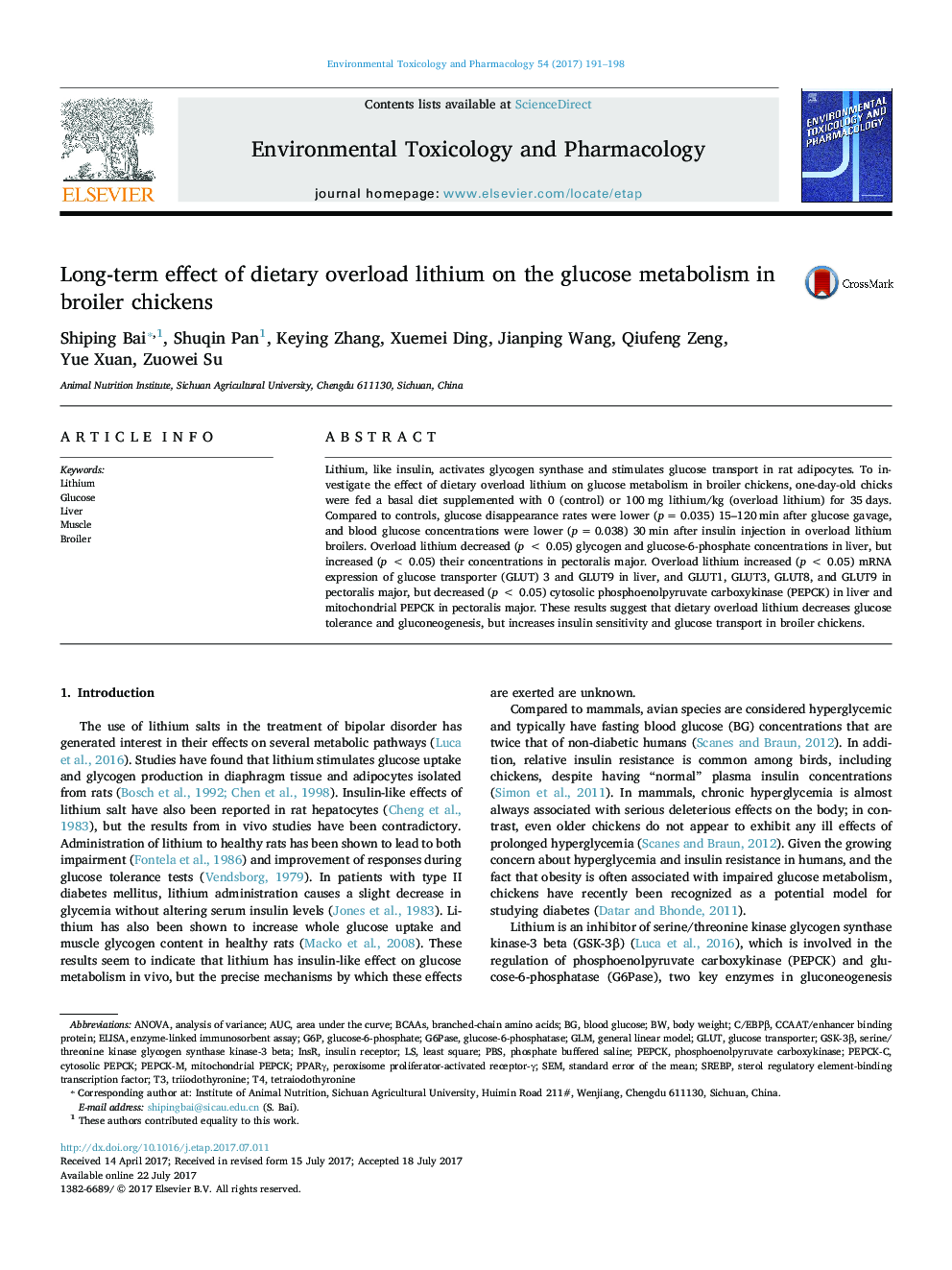| Article ID | Journal | Published Year | Pages | File Type |
|---|---|---|---|---|
| 5559755 | Environmental Toxicology and Pharmacology | 2017 | 8 Pages |
â¢Overload lithium decreased glucose tolerance in broiler chickens.â¢Overload lithium increased insulin sensitivity in broiler chickens.â¢Overload lithium decreased gluconeogenesis in the liver and skeletal muscle.â¢Overload lithium increased glucose transport in the liver and skeletal muscle.
Lithium, like insulin, activates glycogen synthase and stimulates glucose transport in rat adipocytes. To investigate the effect of dietary overload lithium on glucose metabolism in broiler chickens, one-day-old chicks were fed a basal diet supplemented with 0 (control) or 100 mg lithium/kg (overload lithium) for 35 days. Compared to controls, glucose disappearance rates were lower (p = 0.035) 15-120 min after glucose gavage, and blood glucose concentrations were lower (p = 0.038) 30 min after insulin injection in overload lithium broilers. Overload lithium decreased (p < 0.05) glycogen and glucose-6-phosphate concentrations in liver, but increased (p < 0.05) their concentrations in pectoralis major. Overload lithium increased (p < 0.05) mRNA expression of glucose transporter (GLUT) 3 and GLUT9 in liver, and GLUT1, GLUT3, GLUT8, and GLUT9 in pectoralis major, but decreased (p < 0.05) cytosolic phosphoenolpyruvate carboxykinase (PEPCK) in liver and mitochondrial PEPCK in pectoralis major. These results suggest that dietary overload lithium decreases glucose tolerance and gluconeogenesis, but increases insulin sensitivity and glucose transport in broiler chickens.
